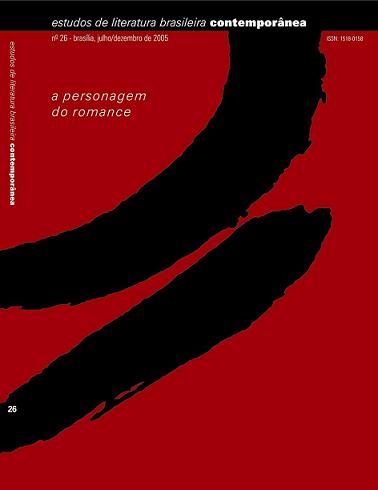O efeito-exótico em Milton Hatoum
Abstract
A literatura brasileira tem-se deparado ultimamente com uma proliferação significativa de obras literárias construídas a partir do deslocamento territorial e de seus diferentes aspectos. Dentro do que se costumou chamar poética migrante, nota-se, no entanto, uma total ausência de estudos sobre a estratégias discursivas específicas colocadas em prática pelos autores vinculados a este paradigma temático. Este constitui um dos temas centrais do nosso estudo que tem por objetivo questionar o aparecimento e as consequências de um efeito-exótico no romance Relato de um certo oriente de Milton Hatoum.
Downloads
References
HATOUM, Milton. Relato de um certo oriente. São Paulo: Companhia das Letras, 1989.
______. “Escrever à margem da história”, Seminário de escritores brasileiros, Instituto Goethe, São Paulo, 4/11/1993.
______. “Um certo oriente”, Letterature d’America, Rivista Trimestrale. Roma, Bulzoni Editore, 2003, pp. 5-17.
MOURA, Jean-Marc. Lire l’exotisme. Paris: Dunod, 1992.
______ e BESSIERE, Jean (org.). Littératures postcoloniales et représentations de l’ailleurs: Afrique, Caraïbe, Canada. Paris: Honoré Champion, 1999.
PELLEGRINI, Tânia. “Milton Hatoum e o regionalismo revisitado”, Luso-Brazilian Review 41:1. University of Wisconsin, 2004, pp. 121-37.
SAÃD, Edward W. L’orientalisme: l’orient crée par l’occident. Paris: Editions du Seuil, 1980.
TODOROV, Tzvetan. Nous et les autres: la réflexion française sur la diversité humaine. Paris: Editions du Seuil, 1989.
Downloads
Published
How to Cite
Issue
Section
License
Authors who publish in this journal agree to the following terms:
a) The authors maintain the copyright and grant the journal the right of first publication, the work being simultaneously licensed under the Creative Commons Attribution License-Non Commercial 4.0 which allows the sharing of the work with acknowledgment of the authorship of the work and publication this journal.
b) Authors are authorized to enter into additional contracts separately, for non-exclusive distribution of the version of the work published in this journal (eg publish in institutional repository or as a book chapter), with authorship recognition and publication in this journal.
c) Authors are allowed and encouraged to publish and distribute their work online (eg in institutional repositories or on their personal page) after the editorial process, as this can generate productive changes, as well as increase the impact and citation of published work (See The Effect of Free Access).
d) The authors of the approved works authorize the magazine to, after publication, transfer its content for reproduction in content crawlers, virtual libraries and the like.
e) The authors assume that the texts submitted to the publication are of their original creation, being fully responsible for their content in the event of possible opposition by third parties.


